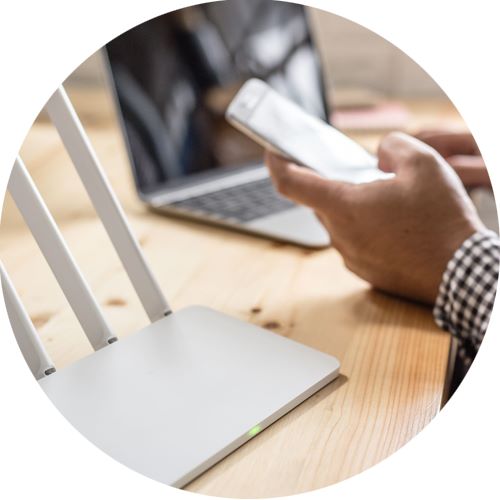Are you experiencing random disconnections while you are trying to surf the web, watching movies, and playing online games? We totally understand your frustration that comes with poor wireless signal strength.
If you are working from home and facing the problems of slow Wi-Fi, each minute can seem like an hour. Poor Wi-Fi signals in certain parts of the home or dead wireless zones can ruin the whole internet usage experience. In the world of today, the internet has become as compulsory as breathing.
Don’t fret. Here are some viable tips that can improve the wireless connection at your home.
Best ways to improve your wireless
Here are some tried-and-tested ways you can try to improve the performance of your wireless in your home:
1. Select a good place for your router
Do you know that the place where you keep your router can influence the coverage of your wireless connections? It means that all locations are not equivalent or appropriate for putting your router. As a general rule of thumb, never place your router near metal objects or any appliances because they emit electromagnetic waves. Nearby metal objects can affect your Wi-Fi coverage and can lead to a large dead zone. Ideally, you should place your router in the center of the house to improve your wireless performance.
2. Keep updating your router firmware
Have you ever heard about malware attacks? To protect your router from malware attacks, it is vital to update your router. If a router is infected by malware, it can spread across the network to connected devices, and can additionally interfere with your wireless coverage. So, one tip to get rid of your wireless connectivity issues is to update the firmware of your router on a regular basis. This will get you better characteristics, improvement in performance, and also keep your wireless connection safe.
3. The antenna of your router should be stronger
A small and weak antenna of the router can also be a cause of issues. Check your router, and if this is the issue, you can add an external antenna as well. You can easily boost your Wi-Fi by changing your antenna. It depends on you which antenna you want: the omnidirectional one that sends signals to all the directions or a directional one that sends signals only in one direction where you are facing the issue of weak signals.
4. Set your wireless range extender/booster
Are you worried that there is a great distance between your workplace and the router? The distance might be the reason that the router is failing to send good signals everywhere? You don’t need to worry as a wireless range extender can help to improve your wireless connection. Most routers are competent in broadcasting till a fixed distance, but to extend your signals, you will need a range extender.
Range extenders work similarly to a router. They just pick the existing Wi-Fi signal and rebroadcast them. In this way, you can get wireless coverage in your home, even at greater distances from the router.
5. The quality of the router
It is a good idea to get the best quality router to improve your wireless; don’t stick with outdated hardware. You cannot expect the best performance from old hardware. A higher-quality router can support the faster standards, yield a better selection of channels, and have better features.
6. Switch to a higher frequency
Firstly, you should know what the frequency of your wireless is? If you have a dual-band router, then instead of using the more common 2.4GHz band, you can switch to your wireless to 5GHz band frequency. It provides faster speed, and you are likely to experience less interference from other wireless networks. So, if your router supports it, just switch it to a higher frequency.
7. Reboot your wireless
Simply switch it off if your device is not working properly. It is yet another tried and tested method to improve your Wi-Fi speed by rebooting it.
So, if you are thinking why my Wi-Fi signals are so poor, stop wondering. Read the above suggestions and solve your issue right away. Some common factors that might affect your wireless performance are distance, interference, router capacity, and obstructions – so figure out what is causing the issue and solve your issue accordingly.


